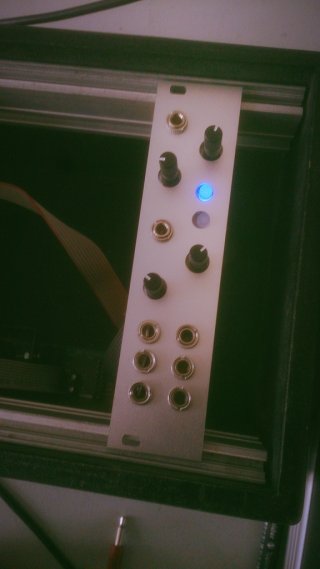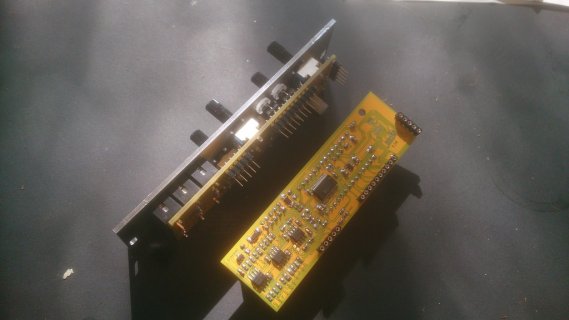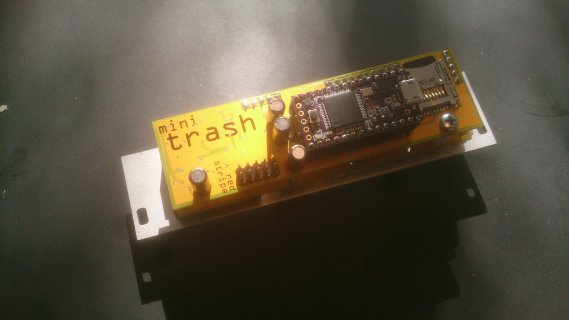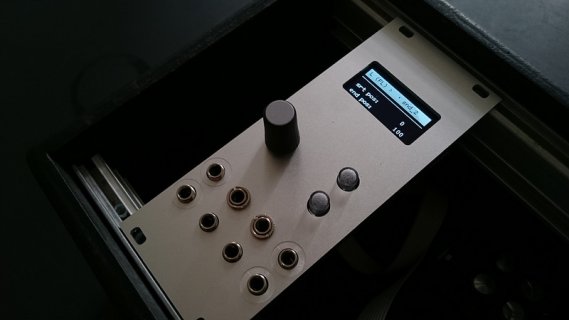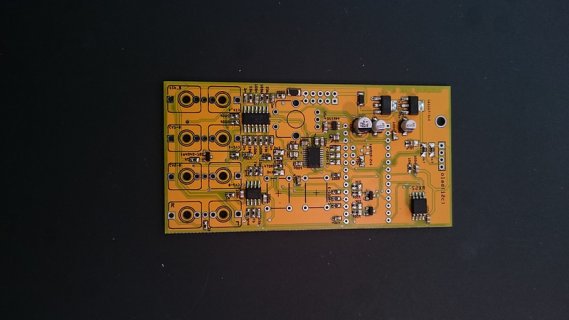since this thing is nearing completion, i thought i might as well post it here, too:
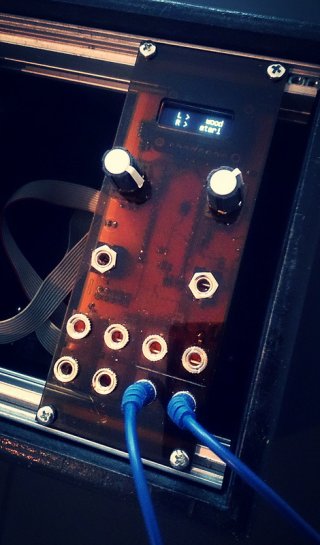
basically, it's an adaptation of the audio shield (exact same pins being used), made for use with modular synthesizers; it's focusing on the wav-subset of the API only though (hence the display).
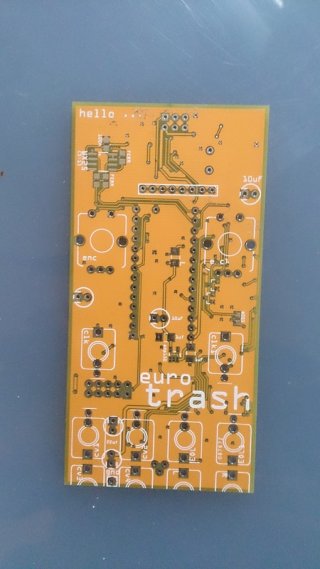
the main difference are: PCM5102a rather than SGTL5000; separate power supply (ADP150); plus all the peripheral circuitry needed to make it play nice with modular synthesizers (mainly a bunch of op amps and transistors). (apart from the left/right outputs (10VPP), there's 4 ADC inputs (+/- 5v) (file start/stop 2x), two encoders w/switches, two digital inputs (trigger L/R) and two digital outputs (end-of-file L/R)); here's a (much) simplified diagram (missing the spi flash, which is there, too):
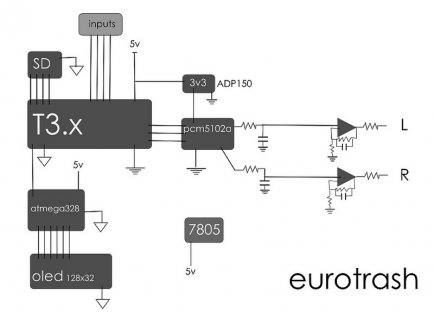
the atmega328 is there to avoid the oled to interfere with the SD card; here's some more info, i'll post the code as soon as i've cleaned it all up:
https://github.com/mxmxmx/eurotrash
http://www.muffwiggler.com/forum/viewtopic.php?t=118378

basically, it's an adaptation of the audio shield (exact same pins being used), made for use with modular synthesizers; it's focusing on the wav-subset of the API only though (hence the display).

the main difference are: PCM5102a rather than SGTL5000; separate power supply (ADP150); plus all the peripheral circuitry needed to make it play nice with modular synthesizers (mainly a bunch of op amps and transistors). (apart from the left/right outputs (10VPP), there's 4 ADC inputs (+/- 5v) (file start/stop 2x), two encoders w/switches, two digital inputs (trigger L/R) and two digital outputs (end-of-file L/R)); here's a (much) simplified diagram (missing the spi flash, which is there, too):

the atmega328 is there to avoid the oled to interfere with the SD card; here's some more info, i'll post the code as soon as i've cleaned it all up:
https://github.com/mxmxmx/eurotrash
http://www.muffwiggler.com/forum/viewtopic.php?t=118378


